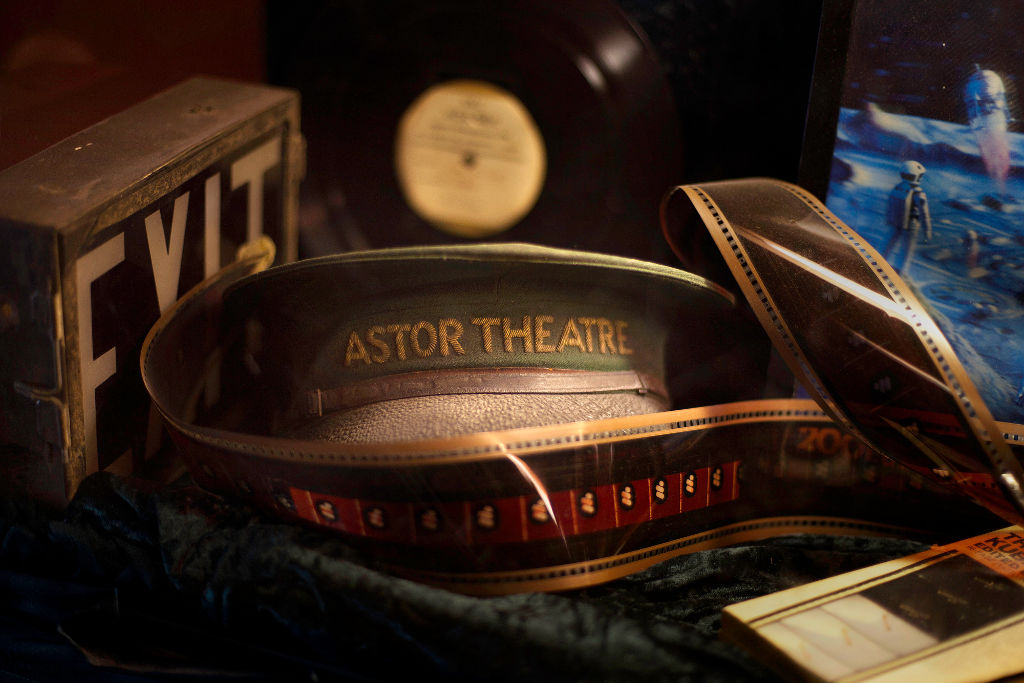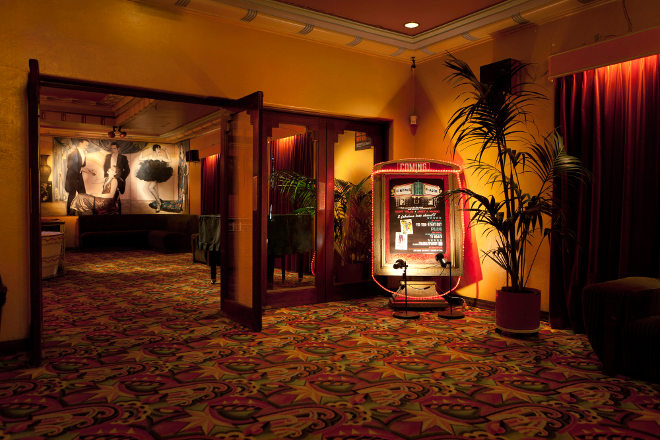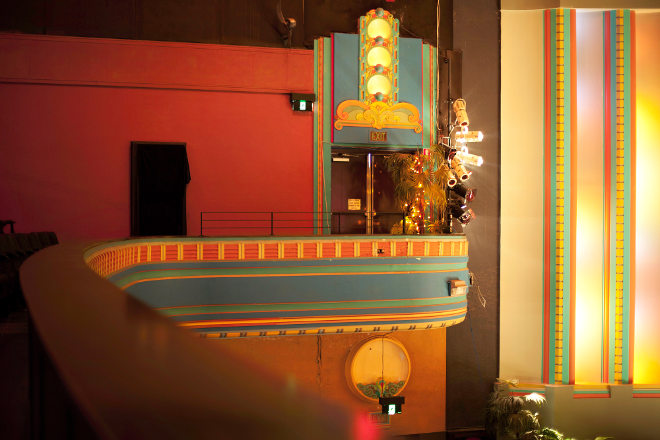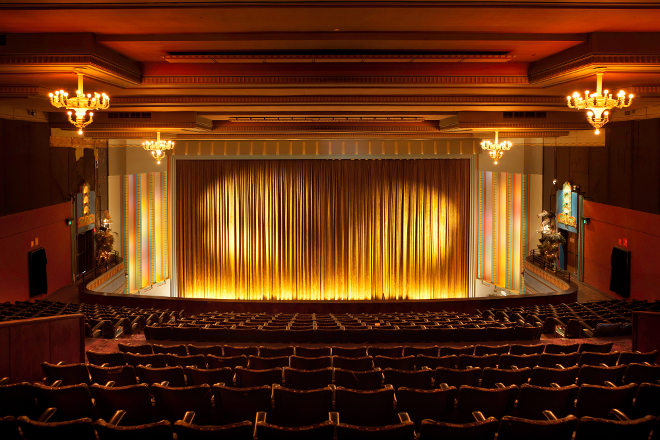Where To Next For Melbourne’s Astor Theatre?
After a long struggle to stay afloat, the Astor Theatre re-opened last week under the management of Palace Cinemas. Will being owned by a chain change the vision of the venue?

Much like sex or travelling overseas, every Melbourne local has a story about visiting The Astor for the first time — and given its history as a single-screen movie-house stretches back nearly 80 years, that’s a whole lotta memories.
In recent years, however, an escalating series of property disputes has seen the Astor, at various times, be: owned by a local college and threatened to be turned into a school assembly hall; sold by the college to a wealthy businessman; involved in a managerial stalemate; and then, earlier this year, forced to announced its closure. Locals spoke of going to see their last ever film at the iconic locale with defeat, while the petitions, protests, and mainstream media op-eds that had helped in its early battles deteriorated to little more than Facebook status update. Meanwhile, the projectors appeared to be spinning their last reels of celluloid film.
And then an odd thing happened. Like Conchita Wurst at Eurovision, the Astor rose like a phoenix after it was announced the venue had been sold to Palace Cinemas. But film lovers around Australia could be forgiven for questioning how being purchased by a corporation would affect the institution. Here was a theatre that had thrived on being one-of-a-kind in a world of beige, identical multiplexes; a retro cinematic oasis at the top of Melbourne’s hip Chapel Street district, which audiences go to as much for the movies as for the ushers dressed in impeccable pillbox hats and bowties, and the hometown famous home-made choc-tops. It all seemed ripe for being gobbled up, converted and spat out as just another building to glance upon mistily and sigh about what it used to be. And certainly in the world of movies, it’s a familiar sight. All of those mourned Blockbuster stores only popped up because independent businesses were bought, sold or simply marched out of town.
–
Consider It A Reboot
Unlike the multiple “white knights” that had been crowed about in the media before, this one appears to have stuck. Owned by the wealthy Zeccola family, the Palace Cinemas chain boasts a genuine affection for the art-deco institution, which has bred an attitude of ease after years of dispute. While seeing any corporation logo trumpet across the screen where there had once been none at all is a jarring change to grow accustomed to – imagine if your local hipster café suddenly started brewing with Nescafé? – but the venue’s new General Manager Zak Hepburn says audiences don’t seem to mind.
“Most people that I’ve spoken to, 99.9% of people are just really excited to be able to walk in again through those doors,” he tells me a week prior to the big re-opening. We’re sitting amongst the plush antique furniture, loomed over by movie posters featuring golden age idols like Rita Hayworth and Gene Kelly. “If there is any [scepticism] then I haven’t encountered it.”
After a soft launch to make sure there were no gremlins in the machine, last week’s gala opening was a lavish, celebratory affair. The cinema’s reboot couldn’t have found a more appropriate film to launch with than Gillian Armstrong’s Women He’s Undressed (2015). When introducing her film to the 1000+ audience, Armstrong made mention of this being “the real world premiere” (but sshhh, don’t tell the Sydney Film Festival); she may have been joking, but the fact that so many of the films featured in this Hollywood documentary — like Jezebel (1938), Oklahoma (1955), and Some Like it Hot (1959) — have screened at this very location countless times, including upon their initial releases, made for surprisingly poignant experience.
A Cinematic Legacy
It’s that same legacy that makes The Astor such an event destination — and Hepburn, who brings with him ten years of cinema and repertory programming history at places like Cult Vault and Shadow Electric to his new post, is excited to blend new initiatives into the stable of tried-and-trusted Astor specialties. While audiences shouldn’t expect 3D, or the “Astor canon” titles like Rocky Horror Picture Show (1975), The Blues Brothers (1980), Baraka (1992), Hamlet (1996), and Ben-Hur (1959) on every one of their famous calendars, a revival of late night genre cult flicks is on the cards for the warmer months. Likewise, there’ll be more marathons like their upcoming James Bond marathon, as well as special events and film festivals; Palace Cinema’s Benjamin Zeccola has said he can “imagine us holding the opening night of the French Film Festival here” – one of the benefits that comes with being owned by the people who run the French, Italian, Spanish and Scandinavian film festivals.
Toilet doors of Victoria rejoice! @astor_theatre's calendar returns. #Melbourne pic.twitter.com/4fEaev7Nm5
— Mikey Cahill (@JoeyLightbulb) May 21, 2015
But when quizzed on Quentin Tarantino’s The Hateful Eight (2015), currently scheduled for a March release, Hepburn remained mum. Tarantino filmed his latest bloody western in the rare 70mm format, and has retrofitted cinemas across America to accommodate his vision. Given The Astor’s position as the only cinema in the country with the capabilities to screen that holy grail of cinephile mediums, it’s surely only a matter of time before thousands of people descend upon the venue for QT’s latest like they did for The Master (2012) and Inherent Vice (2014).
The Astor re-launch is not the only recent development to hit Melbourne’s cinema landscape: there was also so the opening of the Lido in Hawthorn, the launch of trans and gender-diverse film festival Tilde in 2014, and even the ongoing battle in Geelong between Village and the Pivotonian pop-up cinema. Whatever the drama revolving around these changes may be, it’s an encouraging sign that the increase of streaming, VOD, and illegal torrenting hasn’t quite made the floor cave in just yet. As for the Astor, there’s new life in the ol’ dame yet.
–
Glenn Dunks is a Melbourne-based freelance writer, editor and film festival programmer. He tweets from @glenndunks
Images by © Charlie Kinross Photography, for The Astor Theatre.


